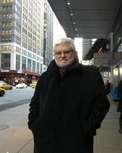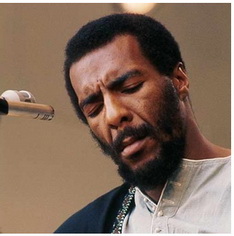 Chris
McDonnell, UK
Chris
McDonnell, UKchris@mcdonnell83.freeserve.co.uk
 Chris
McDonnell, UK
Chris
McDonnell, UK
chris@mcdonnell83.freeserve.co.uk
Previous articles by Chris
Comments
welcome here
January
18, 2017:

When
Richie Havens, who died three years ago, sang at the Woodstock festival in
1969, the outstanding song of his set was ‘Freedom’ in which he mixed
that single word with the old negro spiritual song ‘Sometimes I feel
like a motherless child’. It was a song of heartbreak and despair that
has is roots deep in the slavery of the American South. The words echo the
loneliness that was a consequence of a policy that saw other humans as
possessions, disregarding their rights and feelings.
In
our time it gave rise to the Civil Rights Movement and Integrated schools,
to open diner counters and desegregated seating on public transport.
Recently it brought the Obama family to the White House, a building
constructed using slave labour, a fact that Michelle Obama, the First
Lady, never let her children forget.
To
me, the abiding image of the last eight years of the Obama Presidency is
not one of Obama himself, but of Jesse Jackson, a Baptist minister, born
in South Carolina, who spent his life working with the NAACP, The National
Association for Advancement of Coloured People. That night, when it was
clear the Presidency had been won, Barack Obama
and Joe Biden appeared before the immense crowd in Hutchinson Field in
Grant Park in Chicago, Illinois. Of the many camera shots, that of Jackson
with tears on his cheeks stood out, after years of struggle the dream of a
man of colour in the Oval Office was a significant staging point for
others across the United States. They were tears of amazement and joy
His has not been a perfect Presidency, none are, but it has
been one of honest endeavor where President Obama’s poise and dignity
have reflected his nation’s aspirations.
It has been a Presidency without a whiff of scandal. Now that
immense power is passing to another man, altogether different, brash,
lacking a natural dignity, with no experience of the political high wire
that is now his to walk.
END
-------------------